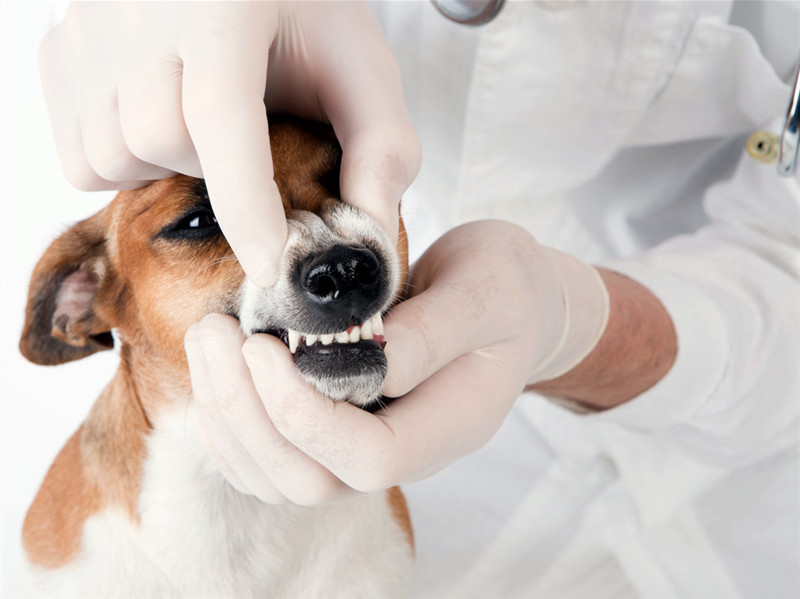Natural Antibiotics for Dogs: Effective and Safe Remedies
As a dog owner, ensuring your furry friend’s health and well-being is of utmost importance. When your canine companion falls ill, you want to provide them with the best care possible. In some cases, your vet may prescribe antibiotics to tackle bacterial infections. However, with increasing concerns about antibiotic resistance and its impact on both humans and animals, many pet owners are turning to natural alternatives to support their dogs’ immune systems and promote healing. In this article, we will explore some effective and safe natural antibiotics for dogs, offering you a holistic approach to their healthcare.
Antibiotics play a crucial role in treating various bacterial infections in dogs. They are powerful medications that can eliminate harmful bacteria, preventing the spread of infection and promoting recovery. However, excessive use of antibiotics can lead to antibiotic resistance, making it challenging to treat infections effectively in the long run. Natural antibiotics, on the other hand, are compounds found in nature that possess antimicrobial properties. They can be effective against certain bacteria and are less likely to contribute to the development of resistance. Integrating natural antibiotics into your dog’s healthcare routine can not only aid in treating mild infections but also boost their overall immunity. Here are some effective and safe natural antibiotics for dogs:
Turmeric extract

Curcumin extract
Turmeric, a popular spice known for its vibrant color and distinct flavor, is also a potent natural antibiotic. In the past, turmeric was largely used as a natural coloring agent for pet food. In recent years, turmeric has appeared on pet food ingredient lists as a “functional additive” – because pet owners have begun to associate turmeric with “beneficial and healthy”, recognizing its anti-inflammatory, arthritis pain relief, gastrointestinal disease relief, steroid replacement and allergy relief.
The active components of turmeric are mainly phenolic compounds and terpenoids. Among them, the most active substances are curcumin compounds, including curcumin, demethoxycurcumin and didemethoxycurcumin. Curcumin, the active compound in turmeric, has strong anti-inflammatory, antiviral, and antibacterial properties. Pet food manufacturers add a small amount (0.05% to 0.25%) of turmeric to their food as an antioxidant or anti-inflammatory component. Studies have shown that turmeric has the potential to act as a preservative to delay lipid oxidation. In a short-term (12-week) oxidation study, a mixture of curcumin-treated fish oil and flaxseed oil (0.1% and 0.2% of food dry base weight) applied to pet food performed equal to or better than BHA.
You can add a pinch of turmeric extract powder to your dog’s food or prepare a turmeric paste to apply directly to wounds or skin infections. Be cautious with the dosage, as too much turmeric can cause digestive issues in dogs.
Raw Honey
Raw honey is a natural antibiotic with powerful healing properties. It contains enzymes that produce hydrogen peroxide, which helps kill bacteria. Honey can provide several health benefits to dogs due to its natural antibacterial and anti-inflammatory properties. Additionally, raw honey has antiviral and antifungal properties, making it a versatile remedy for various health issues in dogs. It can soothe minor irritations, help with coughs, and promote wound healing.
To use raw honey, simply apply a small amount to minor cuts, wounds, or skin irritations. Make sure your dog does not lick the honey off immediately to allow it to work its magic. The honey will not only disinfect the area but also promote tissue repair and reduce inflammation. Raw honey can be safe for dogs when used in moderation and under the right circumstances. However, before introducing honey to your dog’s diet, check for any allergic reactions. Puppies under the age of one year should not be given honey, as their immune systems are still developing, and honey may contain bacteria that their bodies cannot handle. If your dog has diabetes or is predisposed to diabetes, avoid giving them honey, as it can significantly impact their blood sugar levels.
Remember, while honey can offer health benefits, it should never be used as a replacement for professional veterinary care. If your dog is experiencing any health issues, it’s essential to consult with your veterinarian before administering honey or any other home remedies.
Coconut Oil
Coconut oil is another fantastic natural remedy with antimicrobial properties. Health-conscious dog lovers are even starting to incorporate it into their pet care. It contains medium-chain triglycerides lauric acid and caprylic acid, which is effective against bacteria, viruses, and fungi, can even help with weight loss, digestion, immune system, skin and fur health, and thyroid health. Adding coconut oil to your dog’s dry food can reduce the risk of salmonella contamination by using medium-chain fatty acids. If your dog has a small wound, you can apply coconut oil to the wound to form a protective film, which has the effect of preventing bacteria, viruses, mold into the wound. The biggest benefit is safety, not having to worry about the dog licking the wound. Additionally, coconut oil can support your dog’s immune system and improve their skin and coat health.
Adding coconut oil to your dog’s diet can effectively improve body odor in your dog, and can also improve bad breath. You can give your dog coconut oil orally by adding a small amount to their food, or you can apply it topically to soothe skin irritations or minor wounds. The best coconut oil for the dog is unrefined, virgin, and organic, the dosage is about 1 key per 4 kg, it is best to start with a small amount, and slowly adapt.
Apple Cider Vinegar
People love apple cider vinegar(ACV) so much, they’ll credit this ingredient for everything from stimulating metabolism, reduce inflammation and infection. Apple cider vinegar has long been a well-known home remedy in countries such as Germany, Austria, Germany and Switzerland. It has many health benefits for people, as well as for dogs (used properly in moderation) used as a natural antibiotic and antiseptic. 100% naturally brewed apple cider vinegar is rich in vitamins, minerals, magnesium, iron, and potassium, and its natural disinfectant effect can also reduce fungal or bacterial infestation. This can improve your dog’s digestive function. For dogs with indigestion, you can add a small amount in drinking water according to the size of the dog, and you can smell the light sour taste to the dog.
Apple cider vinegar helps maintain a balanced pH level in your dog’s body, creating an environment less favorable for bacterial growth. To use ACV, dilute it with water and apply it to your dog’s skin to treat hot spots, fungal infections, or ear infections. When given orally, it can also aid in digestion and support urinary health. If your dog’s coat is dull and brittle, apple cider vinegar can help make his coat healthy and shiny. Mix 1 part vinegar to 3 parts water in a spray bottle and use it to spray or wipe the dog (after bathing).
Oregano Oil
Oregano contains ingredients with antimicrobial activity such as “thymol” and “carvacrol”. Carvacrol extract has strong antimicrobial properties, making oregano oil effective against various bacteria, including E. coli and salmonella. It is also rich in vitamins such as vitamins C and E, potassium, iron and calcium, and it is expected to have benefits such as digestive promotion and antioxidant effects. So these benefits can help dogs maintain a good and healthy body.
It’s essential to dilute oregano oil extract before using it on your dog, as it can be too concentrated in its pure form. A few drops mixed with a carrier oil can be applied topically to help heal skin infections or added to your dog’s food for internal benefits.
As responsible dog owners, it is crucial to explore safe and effective alternatives to conventional antibiotics. Natural antibiotics offer a viable option to support your dog’s health without contributing to antibiotic resistance. However, before incorporating any new remedies into your dog’s routine, always consult your veterinarian to ensure they are appropriate for your pet’s specific condition and health status. Remember, a holistic approach to your dog’s healthcare involves a balanced diet, regular exercise, and lots of love and attention. By integrating natural antibiotics into their routine, you can play an active role in promoting their well-being and ensuring they lead a happy and healthy life.





